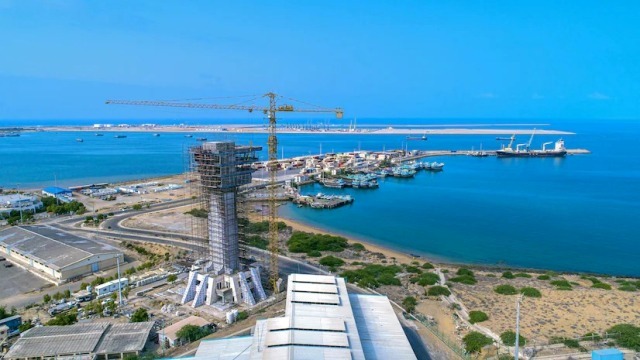New Delhi: Hours after India signed an agreement with Iran to operate the Chabahar Port for 10 years; the rattled United States has warned that anyone trying to initiate business deals with Tehran might attract US sanctions.
In the press briefing on Monday, US State Department Principal Deputy Spokesperson, Vedant Patel, said, “Any entity, anyone considering business deals with Iran, they need to be aware of the potential risk they are opening themselves up to, potential risk of sanctions”.
He further added, “We are aware of these reports that Iran and India have signed a deal concerning the Chabahar Port, I would let the government of India speak to its own foreign policy goals, vis-a-vis the Chabahar Port as well as its own bilateral relationship with Iran”.
The Long-Term Bilateral Contract on Chabahar Port Operation was signed between Indian Ports Global Limited (IPGL) of India and the Port & Maritime Organisation (PMO) of Iran on Monday, enabling the operation of Shahid-Behesti port in the Chabahar Port Development Project for a period of 10 years.
IPGL has committed to continue equipping and operating the port throughout the contract’s duration. After the 10-year period, both parties will extend their cooperation in Chabahar. This lease agreement strengthens the bilateral ties between the two countries, fostering confidence and trust among trading communities in the region.
IPGL plans to invest around USD 12 crore in upgrading the port. India has also offered a credit line of USD 25 crore, for mutually identified projects for infrastructure improvement in Chabahar.
As India and Iran look forward to boosting their economic ties, the new threat from the US serves as a reminder of the impending challenges both nations may face.
The Chabahar Port, a flagship project between India and Iran, is a crucial transit port for trade with landlocked Afghanistan and Central Asian countries. India has played a significant role in the development and operation of the Chabahar Port.
The Indian government has invested in the port’s infrastructure to make it a viable transit route for Indian goods bound for Afghanistan and Central Asia via the Arabian Sea route. This move aims to reduce dependence on its arch-rival Pakistan. However, the development of the port has faced several hurdles in the past, primarily due to US sanctions.



